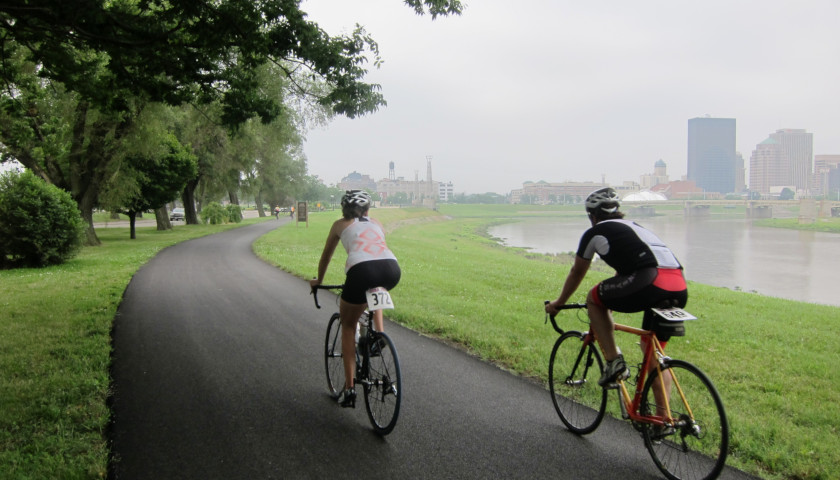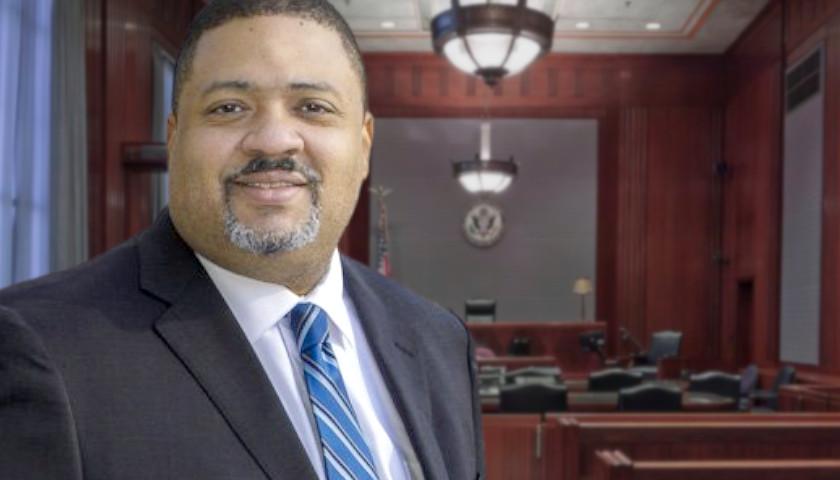The use of eminent domain to build bike trails and other recreational trails in Ohio would be prohibited under a bill pending in the Ohio House.
 Rep. Don Manning (R-59) said his House Bill 288 is a direct response to eminent domain lawsuits filed by the Mill Creek MetroParks in his district, which includes Mahoning County, except for the city of Youngstown.
Rep. Don Manning (R-59) said his House Bill 288 is a direct response to eminent domain lawsuits filed by the Mill Creek MetroParks in his district, which includes Mahoning County, except for the city of Youngstown.
The bill defines recreational trails as “a public trail that is used for hiking, bicycling, horseback riding, ski touring, canoeing, or other nonmotorized forms of recreational travel.”
In 1993, the Mill Creek MetroParks embarked on a multi-phase project to build a bike path. The current MetroParks Bikeway runs from the Mahoning County/Trumbull County line in Austintown Township to Western Reserve Road in Canfield Township. The third phase of the project is to add additional miles roughly paralleling Washingtonville Road.
In 1996, the park system conducted a feasibility study that decided the “preferred alignment” for the bike path was along a former railroad corridor. Then in September, the park commissioners authorized the acquisition of property and easements to construct the bike path, including the use of eminent domain.
Eminent domain is when a governmental unit takes private property for a public use, and then compensates the property owner for the taking. In Ohio, all that is required for a governmental body to use eminent domain is the decision by the body that the taking of land is “necessary” and in the “public interest.”
So far, the MetroParks have filed nine cases against property owners along the Phase III portion of the bike path. One owner settled their lawsuit on July 23.
Manning first learned of the issue when his constituents, the property owners, contacted him. Saying there are always two sides to an issue, he also met with the MetroParks administrators. He said the original plan for this portion of the path was to go along Washingtonville Road.
“Now they’ve decided they want to go through these properties, instead,” he explained. “I’m still trying to find out how and when this decision was made. They were either unable or unwilling to tell why they decided to go through the properties instead of the road.”
When Manning offered to help the MetroParks mediate the issue, he said was told “the time for talking is over – we’re going to take this land.”
“That’s an arrogant thing to say,” Manning said. “And it’s a prime example of government overreach. I don’t think a bike trail rises to the level of the greater good of the citizens – it’s not even going to be use by a majority of the people in this area.”
Manning explained the intent of the bill is to prevent any government entity from “stealing people’s land by eminent domain for something so trivial as a bike trail.”
Even if a bike trail did rise to the level of the “greater good of all citizens, it isn’t a necessity,” he added.
Manning said the legal argument so far is that the bike trail is a “park way.” The Ohio Constitution says parks have the authority to take land for a park or park way.
“It’s not an entrance to a park,” he said. “This is 20-25 miles from the park, so I think they’re sadly mistaken that this is a park way.”
The bill includes an emergency clause, which means that if passed and signed by the governor, it goes into effect immediately, instead of waiting the normal 90 days. It also means that the bill is likely to receive priority by both the Ohio House and Senate.
Time is of the essence, Manning said. “Some of the pretrial dates for constituents have already been scheduled. The goal is to get it done before the MetroParks can steal some of this land,” he added.
He also said that if the MetroParks is successful in getting any of the disputed land before the legislation passes, he will move to amend the bill to prevent the actual taking of the lands.
“As long as it’s written the right way,” he explained, “there can be retroactive banning – and that might be another avenue for a court challenge. But my understanding is that it could contain language to address anything that’s in process during the time the bill is being considered.”
So far, only Republicans have signed on as co-sponsors, but Manning said he expects bipartisan support as the bill moves through the legislative process.
But there will be some opposition, he said.
“I don’t think there’s going to be any opposition other than from groups wanting to steal people’s land,” he explained. “I really don’t expect anybody other than the state metro parks because it limits their power and I’m in favor of limiting their power, especially when it comes to a case of government overreach like this.”
Manning has heard rumors that the law, if passed, will have legal challenges from Mill Creek MetroParks and perhaps other parks across the state.
“I hope they do challenge it. I hope it goes all the way to the (Ohio) Supreme Court,” he said. “I think the language is sound and that we’ve got the winning side if a court battle happens.”
The bill has been assigned to the House Civil Justice Committee. The House and Senate are currently on their summer recess. Their next sessions are scheduled for September.
– – –
Maggie Leigh Thurber is a writer for The Ohio Star. Email tips to [email protected].
Photo “Great Miami Bike Trail” by Art Anderson. CC BY-SA 3.0.





